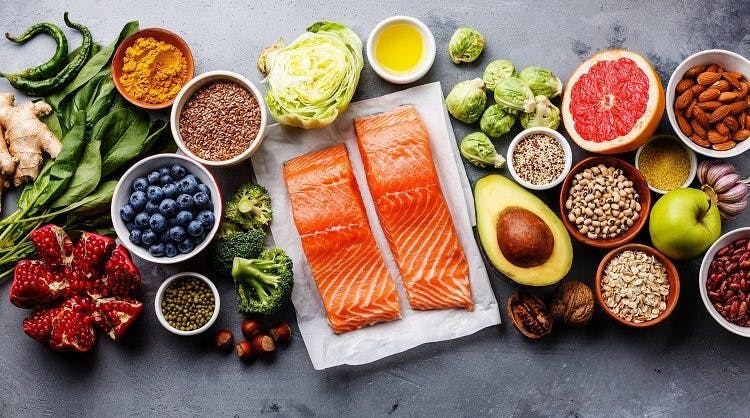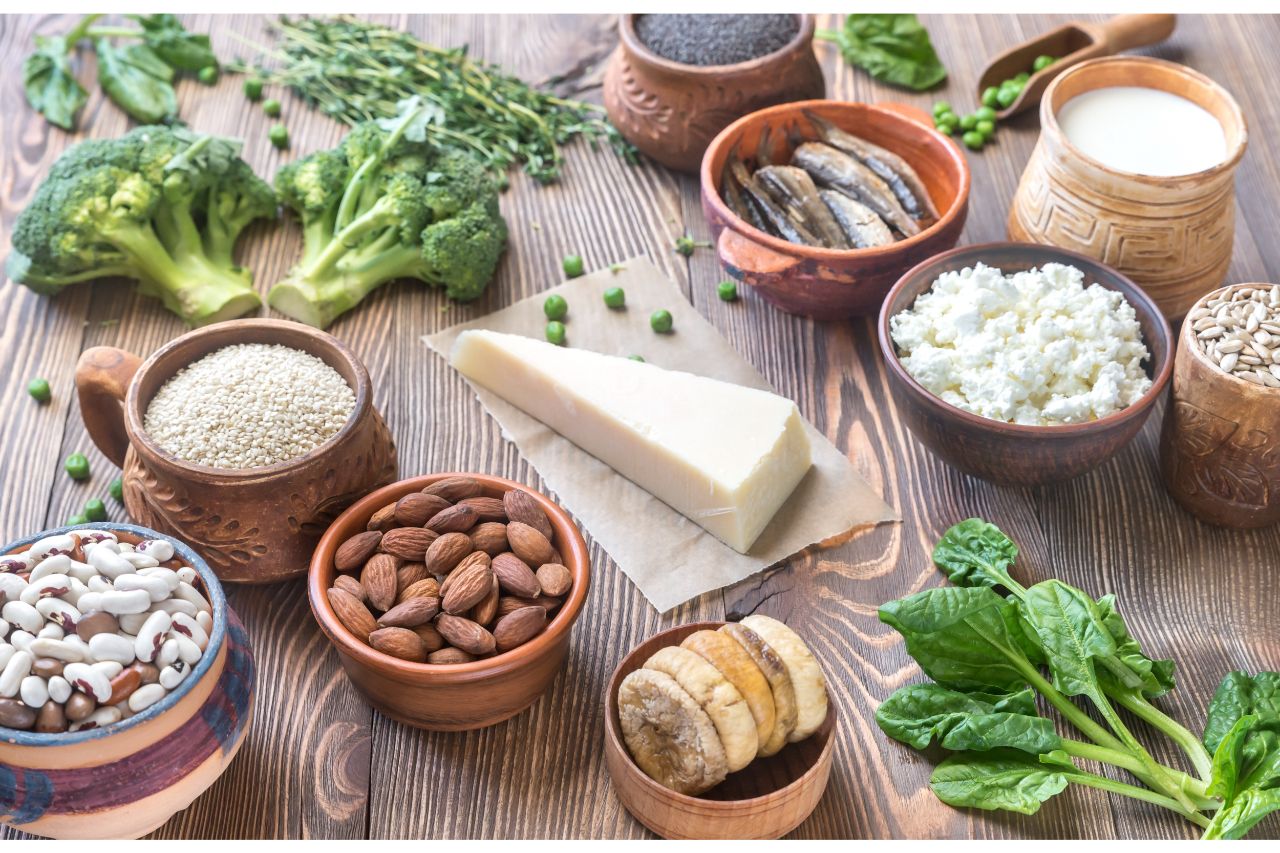Nutrition and its Role in Promoting a Strong Spine: A healthy spine is the backbone of a vibrant life. In this comprehensive guide, we’ll explore the vital role of nutrition in maintaining a strong and resilient spine. Discover the nutrients your spine craves and how a well-balanced diet can contribute to spine health, mobility, and overall well-being.

Introduction Of Nutrition and its Role in Promoting a Strong Spine
While exercise and posture play crucial roles in spine health, nutrition is often an overlooked aspect. The spine, a complex structure of bones, muscles, and discs, requires proper nourishment for optimal function. Let’s delve into the world of nutrition and understand how it can be a key player in promoting a strong spine.

The Building Blocks of a Strong Spine
1. Calcium and Vitamin D
- Role: Essential for bone health.
- Sources: Dairy products, leafy greens, fortified cereals, sunlight.
2. Magnesium
- Role: Supports calcium absorption.
- Sources: Nuts, seeds, whole grains, leafy greens.
3. Vitamin K
- Role: Aids in bone mineralization.
- Sources: Broccoli, Brussels sprouts, kale, spinach.
4. Omega-3 Fatty Acids
- Role: Anti-inflammatory; supports joint health.
- Sources: Fatty fish (salmon, mackerel), chia seeds, walnuts.
5. Protein
- Role: Building blocks of muscles and tissues.
- Sources: Lean meats, poultry, fish, dairy, legumes.
6. Collagen
- Role: Provides structural support to discs and ligaments.
- Sources: Bone broth, chicken skin, fish.
Read More:
Beneficial Foods for Spine Health

1. Leafy Greens
- Benefits: Rich in calcium, magnesium, and vitamin K.
2. Fatty Fish
- Benefits: Omega-3 fatty acids for anti-inflammatory effects.
3. Dairy Products
- Benefits: Excellent sources of calcium and vitamin D.
4. Nuts and Seeds
- Benefits: Provide magnesium and healthy fats.
5. Lean Proteins
- Benefits: Support muscle health and overall tissue repair.
6. Bone Broth
- Benefits: Contains collagen, supporting disc and ligament health.

FAQs (Frequently Asked Questions)
How does calcium contribute to spine health?
Calcium is a crucial mineral for bone health, providing strength and structure to the spine. It is essential for preventing conditions like osteoporosis.
Can vitamin D deficiency affect the spine?
Yes, vitamin D is necessary for calcium absorption, and its deficiency can lead to weakened bones and increased risk of spine-related issues.
Are there vegetarian sources of omega-3 fatty acids?
Yes, chia seeds, flaxseeds, and walnuts are excellent vegetarian sources of omega-3 fatty acids.
How can protein intake impact spine health?
Protein is vital for the repair and maintenance of muscles and tissues, including those in the spine. A sufficient protein intake supports overall spine health.
Is it necessary to take supplements for spine health?
While a balanced diet is the primary source of nutrients, supplements can be considered if there are deficiencies. Consultation with a healthcare professional is advisable.
Can certain foods worsen spine-related inflammation?
Processed foods, high in sugar and unhealthy fats, can contribute to inflammation. A diet rich in whole foods is generally anti-inflammatory and beneficial for spine health.
Conclusion
Nutrition plays a pivotal role in promoting a strong spine and overall musculoskeletal health. By incorporating a variety of nutrient-rich foods into your diet, you provide your body with the essential building blocks it needs for a resilient spine. Whether it’s calcium for bone strength, omega-3 fatty acids for inflammation control, or protein for muscle support, a well-balanced diet sets the foundation for a healthy and strong spine.
Book Your Consultation
Website: https://tinyurl.com/yyzvwmck
Email: info@klmgrou p.org
Ph: 0751-4000721,Mob: 7804826825
Address: 12, Saraswati Nagar, University Road, Near Silver Estate, Thatipur, Address Link: https://g.page/r/CQ0WqKLEXPWeEAE Powered By Argusdna

